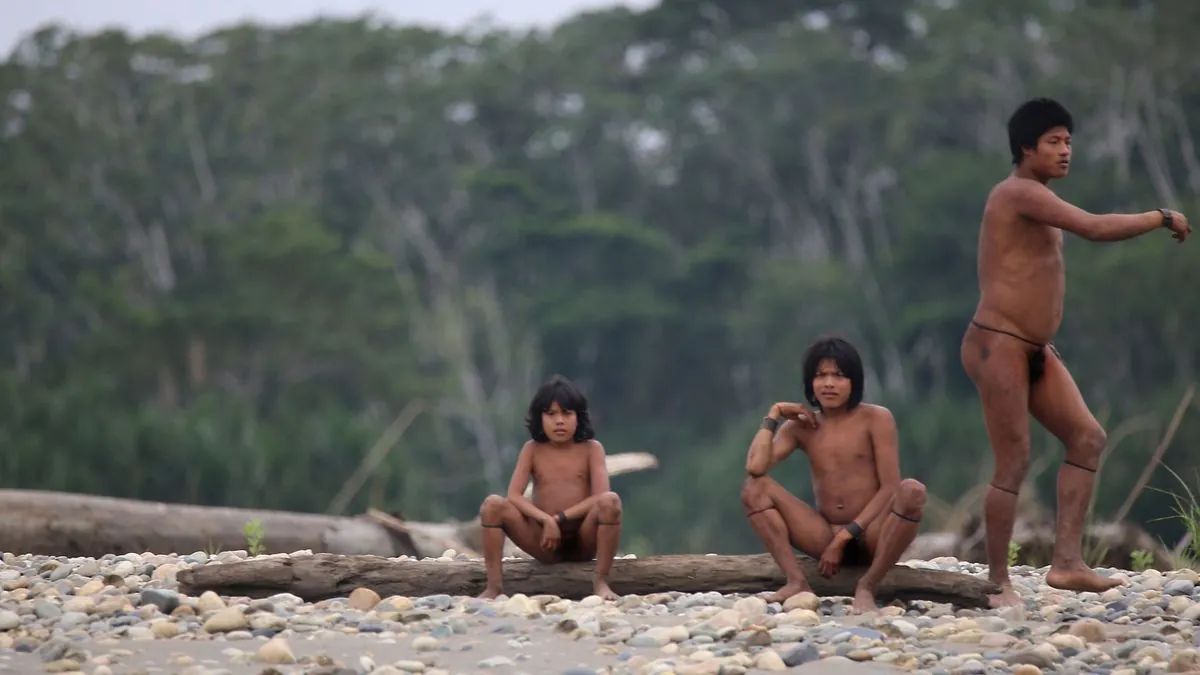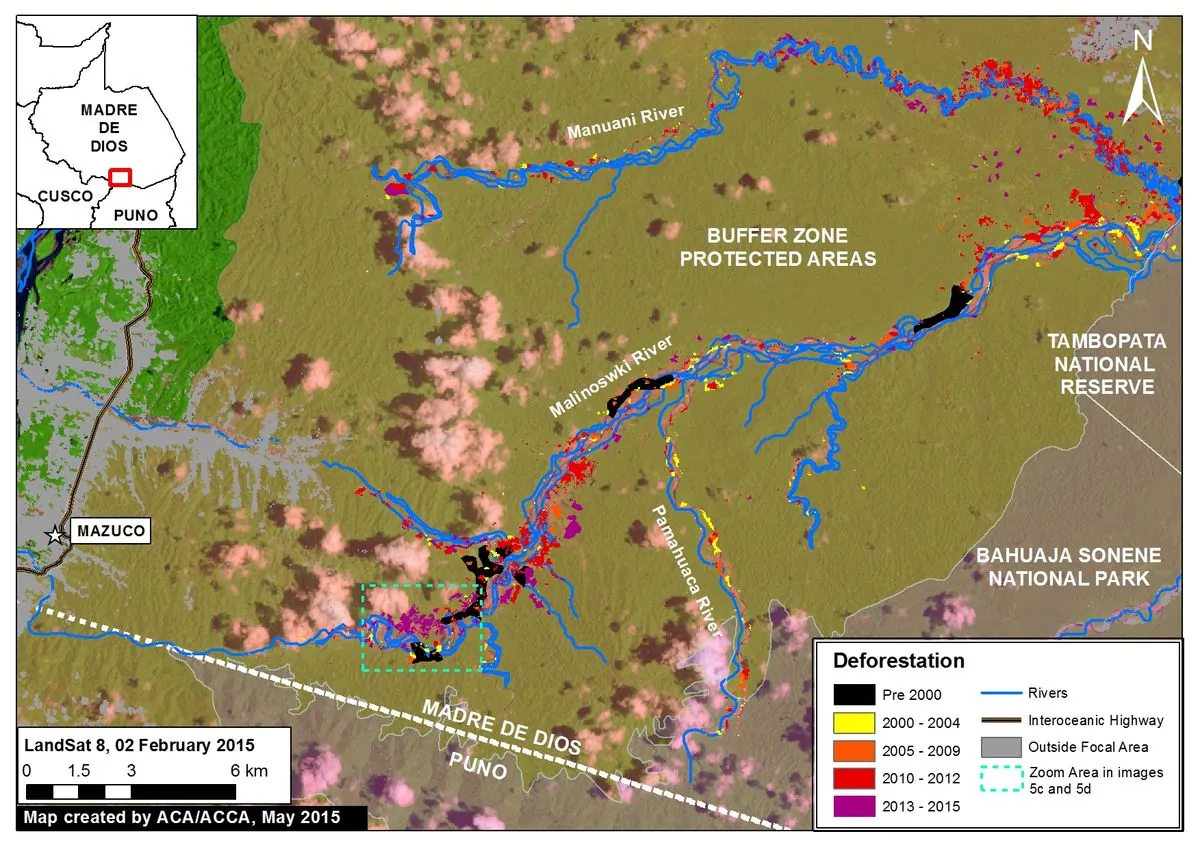FSC Halts Certification for Peru Logger Amid Uncontacted Tribe Concerns
Forestry watchdog suspends certification of Peruvian logging company after sightings of uncontacted Mashco Piro tribe. Indigenous rights groups hail decision as step towards protecting isolated communities in the Amazon.

The Forest Stewardship Council (FSC), an international non-profit organization promoting responsible forest management, has temporarily withdrawn its certification from Canales Tahuamanu, a logging company operating in Peru's Amazon region. This decision comes in response to recent sightings of members from the uncontacted Mashco Piro tribe near the company's concession area.
According to information from Survival International, an NGO advocating for indigenous rights, the FSC's certification suspension will take effect on September 13, 2024, and last for eight months. During this period, the forestry watchdog plans to investigate the situation and engage with Peruvian authorities to address land classification issues in the country.
The suspension follows reports of Mashco Piro tribe members being observed in late June 2024 in a remote part of the Madre de Dios region, an area known for its rich biodiversity. This region, located in southeastern Peru, is home to a significant portion of the country's Amazon rainforest, which covers approximately 60% of Peru's total land area.

Indigenous organizations in Peru assert that the Mashco Piro, one of the few remaining uncontacted tribes in the Amazon, are being forced to flee their traditional territories due to encroaching logging activities. These tribes are particularly vulnerable to diseases from outside contact and face significant risks from interactions with modern society.
Canales Tahuamanu's logging concessions, granted by Peruvian authorities, span nearly 53,000 hectares of forest in Madre de Dios. The company primarily extracts valuable hardwoods such as cedar and mahogany, which are highly sought after in the global timber market.
Julio Cusurichi, a representative of AIDESEP (Interethnic Association for the Development of the Peruvian Rainforest), welcomed the FSC's decision but emphasized that more action is needed. He stated, "This is an important step, but not the final one. We will continue fighting with the same strength until we achieve a historic victory in favor of the rights of the people."
The FSC certification process involves rigorous independent auditing of forest management practices to ensure they meet strict environmental and social standards. This suspension highlights the ongoing challenges in balancing economic development with the protection of indigenous rights and environmental conservation in the Amazon.
Peru, which contains the second-largest portion of the Amazon rainforest after Brazil, has laws in place to protect indigenous peoples living in voluntary isolation. However, enforcement of these regulations often proves challenging in remote areas.
As deforestation in the Amazon continues to have significant impacts on global climate change, the international community is increasingly focused on sustainable forestry practices. The FSC's decision to suspend Canales Tahuamanu's certification underscores the growing importance of considering the rights and well-being of uncontacted tribes in forest management decisions.
While this suspension marks a victory for indigenous rights advocates, it also raises questions about the future of logging operations in sensitive areas of the Amazon and the effectiveness of current protection measures for isolated communities.


































